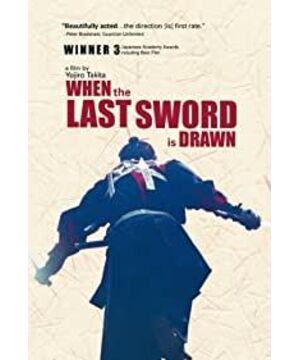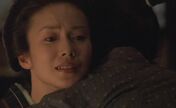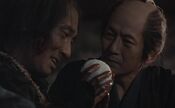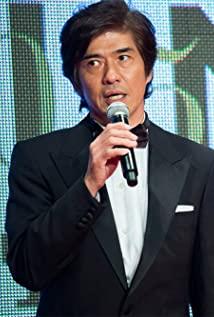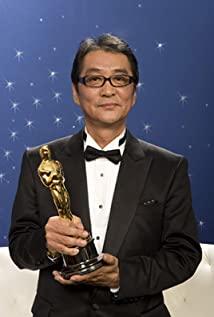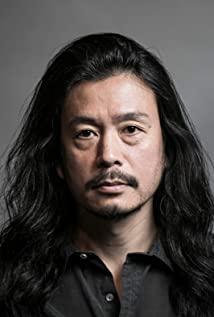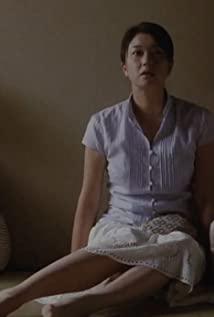I'm not Japanese, so it's boring to analyze Japan's era as if it's rude, at least for me. However, it is really difficult to accept and understand the protagonist's bullshit logic if we don't talk about this nationality in this film.
Japanese period dramas have such characteristics. They are similar to Chinese chivalrous tenderness, but they are different. Japanese children’s feelings are more subtle and less happy, and “chivalry” should be the ultimate pursuit of Bushido honor, and this Such pursuits will vary from region to region, and will not overlap with Chinese-style "chivalrous bones". For example, in the movie Yoshimura, his samurai honor is first of all local honor, not loyal to the shogunate or the emperor or the fate of the country. For him, the south is his country; secondly, it is the samurai's letter of promise, and the Shinsengumi is his unit. And he received the money from the shogunate, fought for the shogun until the last moment, and was even willing to give up his own life; in the end, it was the etiquette of a samurai. For the etiquette and dignity of a samurai, he chose to endure the misunderstanding of his friends and the contempt of his students and left his hometown. Get out of the vassal to make money (join the Xinxuan group to cut people). "Ren" unfolds according to such a routine: the Japanese-style chivalrous tenderness of small characters, chivalrous bones + tenderness, interspersed with the development of two lines, making the characters plump.
In fact, the story of the film is very simple and very cheap. A very wretched migrant worker who is greedy for money but very capable of hacking people enters the city to join the joint defense team. As the story unfolds, we find that this migrant worker is actually a very sad little person who "smiles with tears". It turned out that this wretched middle-aged man was a rural private teacher. His hometown was suffering from famine. The poorer you are... ). In the second half of the story, the government changed (more violently), and the joint defense team followed the regular army to fight the rebels. The rebels were brutal, and the regular army was killed. The regular army has all run away (turned into a rebel army), but the male protagonist uses his actions to show that he fought to the last moment, fully demonstrating his precious laborer spirit of devotion and love. In the end, the hero died with infinite nostalgia for his hometown and infinite honor.
Japanese period dramas have a routine. The same feature is that Japanese-style stories are told in a eloquent manner, especially the love between men and women is as plain as water, the love of hometown is unforgettable, and finally the honor of the samurai who regards death as home. The rhythm is not fast, and the twists and turns are not big, but in the end, it can grab tears. At the same time, period dramas are characterized by a variety of images of life. In addition to the main line of the protagonist written above, other branch characters are also quite full, which has a sense of richness of the great era, and the level of this richness is in several Descendants a hundred years later seem to have a sense of helplessness and regret over the crushing of history.
In particular, let's talk about the death of the last male lead. Writing here, I am reminded of the death of Xiao Feng from the Eight Parts of Tianlong. At first, I couldn't understand why the director wanted to fool this little guy, begging to die but not dying. A righteous man, who begged for death but could not die, in the end, he was very lingering and praying for life, and in an instant he abandoned all the honor and etiquette of the samurai. Of course, we can understand the infinite nostalgia for family affection, as well as the small people's consistent tolerance for life. Later, I suddenly remembered the death of Xiao Feng (I cried here when I was reading the novel when I was a child), and it turned out that this book was not a happy revenge of our Chinese chivalrous men. Xiao Feng's death can make a good man cry (I consciously made a good man), and I believe that most people see the male protagonist rushing to the gun formation, in addition to sighing, probably still sighing with emotion. If there are tears in this film, it is also a feeling of affection and affection for the little person who finally died.
The righteous people of Japan - I personally think that there is a big difference between the righteous people of Japan and the righteous people of China. I think the righteous people of Japan are more like the Chinese pre-Qin. This kind of loyalty can have nothing to do with national righteousness, but pay more attention to loyalty from the bottom to the top. (It has a lot to do with the human environment in Japan.) Therefore, even if Miyu Wolf is clearly a military police force that goes against the trend of history, in terms of the performance of so many literary and artistic works, it is even more sympathetic to the public. Regardless of the content of "righteousness", because of the samurai's persistent pursuit of faith and unshakable honorary mission, this is Japan's righteousness. Very narrow, and very modest, but very direct, a man could have been very direct.
So thinking about it, the logic of the characters becomes clear again. In the end, Yoshimura's glory as a samurai, when everyone is defeated, hopes to fulfill the glory of samurai by fighting to the death, and realize his loyalty to the employer. Fighting to the death and not dying (no matter how fucked up the plot is, he didn't kill him with more than ten guns, scumbag, the people who died in front of them all eat shit), Yoshimura ran back to the Beijing Office in the south by chance. Yoshimura has fulfilled his loyalty to his employer with his life and has already died once. Yoshimura, who died once, is no longer a samurai of the Shinsengumi, but a samurai from the south, a samurai eager to return to his hometown. Out of his nostalgia for "home", Yoshimura used his little man's way of life to abandon everything of the samurai and pray for the forgiveness of his hometown.
This is Yoshimura, a stereotypically divided Japanese - who could not have dashed for the gun, could have died on the battlefield.
Finally, let's use the last line.
Flowers that bloom beyond time! (I think so)
View more about When the Last Sword Is Drawn reviews


